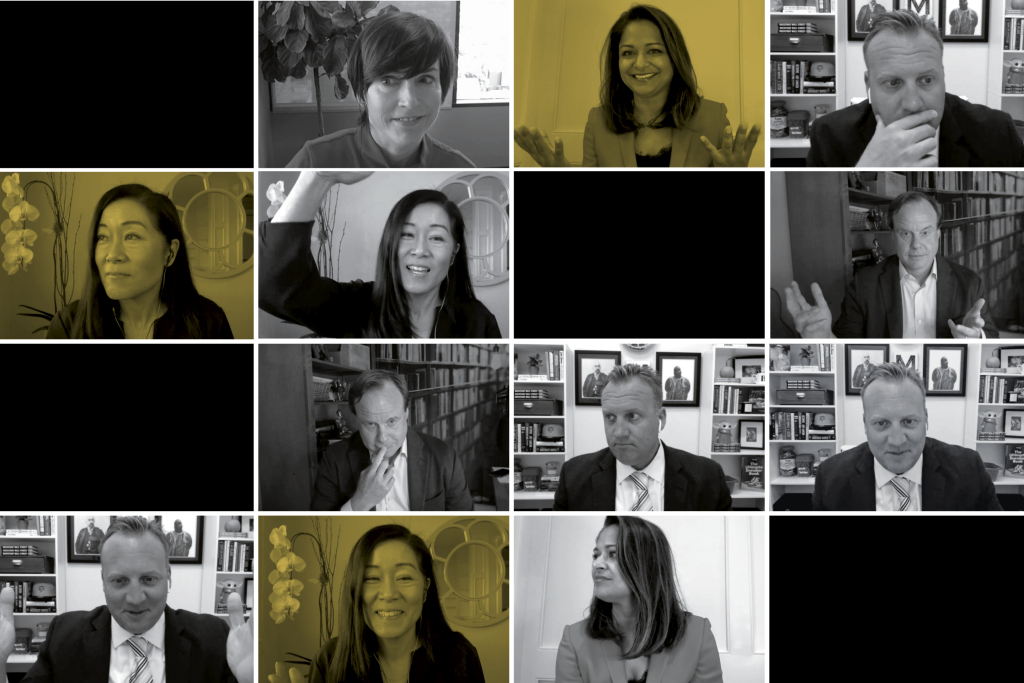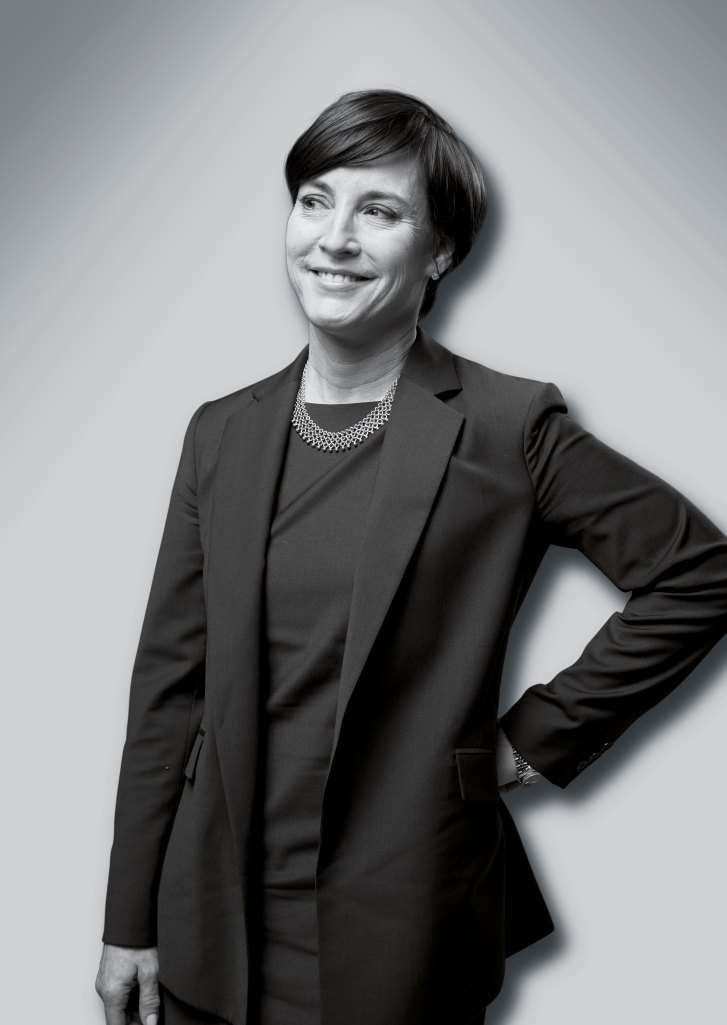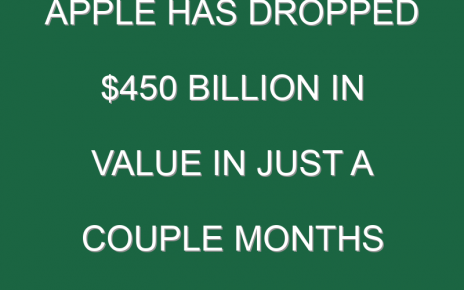When Fortune’s Investor Roundtable met this month, business-friendly election results and positive news about potential COVID vaccines were driving stocks to new record highs. Our panelists are looking forward to helping their clients profit from an economy that might—with a little luck—be rounding back to normal in 2021.
But they aren’t without worries. Tensions between China and the U.S., and between political opponents, state-side, after a divisive election, have several members of the group feeling cautious. Others are concerned about the consequences of getting too much of a good thing: If a strong economy leads to rising interest rates (as it often does), that could hurt stock performance in the long run.
Joining us were Savita Subramanian, head of U.S. equity and quantitative strategy and head of global ESG research at Bank of America Merrill Lynch; Josh Brown, CEO of Ritholtz Wealth Management; David Eiswert, head of the top-performing T. Rowe Price Global Stock Fund; Sarah Ketterer, CEO and fundamental portfolio manager of Causeway Capital; and Mallun Yen, cofounder and general partner of early stage venture capital firm Operator Collective. The following is an edited excerpt from our conversation.

Fortune: Where do you see the greatest opportunities and biggest risks in the year ahead?
Sarah Ketterer: So many companies have been using the pandemic to cut costs and increase operating leverage, and many of them will likely generate higher profit margins than they did pre-pandemic. But the catalyst behind all this is not just vaccines and therapies and testing. We’ve had $10 trillion, globally, of monetary and fiscal support from central banks. This typically hits economies with a one- to two-year lag, so we haven’t even seen the full impact yet. It’s the materials stocks, the consumer discretionary, the financials, industrials, that will come roaring out of this.
The risk that worries us the most is U.S.-China relations. We just opened a Shanghai office, and I want to make sure that there’s free movement of ideas, of knowledge. There’s so much we can learn from private sector companies in China and vice versa. If that’s cut off, and we balkanize, the world is worse for it.
David Eiswert: We now know there’s gonna be multiple vaccines. We’re gonna beat COVID. I feel pretty confident about that on a 12-month, 18-month basis. That’s the destination. But the path is rocky. You have to suffer on the path in the near term, so that you make money over the next two, three years. I think social unrest is a big risk. I don’t understand our country right now. I don’t understand beliefs that people have, and how opposed they are. I think it makes us vulnerable. And I worry about interest rates. Right now we live in zero-interest-rate land. Housing prices are off the hook—what was the 30-year mortgage, recently, 2.8%? When that goes away, all asset prices are going to go down. Do we have an economy that can sustain growth with a 10-year Treasury at 3%? Because that’s going to cause pain.

Mallun Yen: So, 1.1 million workers dropped out of the labor force in September, and 80% of those were women. And the reasons include the fact that a lot of the supports that we have in place for working parents, like traditional childcare and traditional school, went away. How do we make sure that the workforce that we’ve worked so hard to get onto equal footing is not wiped out, so that you can have the Sonia Syngals and Lisa Sus in the next generation?
It’s very hard for working parents, single working moms, to fit into the rigid corporate structure of having to commute in, having to work from eight to five. So I’m very encouraged that people have now gotten used to the fact that, hey, you don’t have to fit into that rigid, traditional corporate construct. We can work a little bit more flexibly.
Savita Subramanian: The S&P 500 in particular, which we all watch as a barometer, has started acting really weird in terms of price swings. We’re seeing eight-standard-deviation events happen every other day—these are supposed to happen every hundred years. And maybe this is because of the democratization of the market, which is good—but it also means you have the ability to express a bet very quickly, and roil the market.
2.8%
Average rate on a 30-year fixed mortgage for the week ended Nov. 5–an all-time low. Some investors fear that stock and other asset prices will slump if interest rates eventually rise.
But there’s an opportunity there, too. For the S&P 500, if you’re buying and selling the market on a one-day basis, your chance of making money is a little bit better than a coin flip. But if you extend that time horizon to 10 years, your probability of losing money is less than 5%. So thinking about the market from an old-school buying-and-holding mentality, and not trading as aggressively, might be the biggest opportunity to make money.
Josh Brown: I’ll give you one very big risk. What the Fed did this year was probably essential. But it may have set a really bad precedent. Normally, in a recession of the magnitude that we’ve had, we would have already been in the midst of a wave of corporate bankruptcies. And in fact, there are almost no bankruptcies. And we did that, of course, so that companies would keep their workers and the wheels wouldn’t fall off. But we had a recession without having a recession. And I don’t think that we have fully mentally processed that.
And here’s the problem: We’ll have another recession. It might be in three years, it might be in 12 years, I don’t know. But the pressure on policymakers will be to simply repeat what we just did. And people will say, “Last time you just gave everybody money. Why wouldn’t you do it this time?” “Well, that was a pandemic.” “Oh, well, this time it’s an alien invasion. I feel like that’s just as bad. Pull the trigger.” It’s insanity, but Whirlpool just sold more bathtubs in a recession than in an expansion. Or look at GM’s earnings. It’s bananas. How are we going to avoid doing this again? And here’s the thing: Every time we do it, more debt goes up. We’ve always been in this trap. But now we’re really in it.
Here’s the problem: We’ll have another recession. And the pressure will be on policymakers to simply repeat what we just did.
Josh Brown, Ritholtz Wealth Management
Here’s an opportunity that’s profound. Direct indexing [buying diversified portfolios of many individual stocks, rather than index funds or ETFs] is going to change our industry in massive, fundamental ways. We began migrating ETF-only households over to direct indexing. And I cannot tell you the degree of client satisfaction, performance improvement, tax-loss harvesting, the ability to remove companies that aren’t highly ranked on gender equality, to remove gun manufacturers, pull out of oil companies that aren’t trying to improve their environmental impact, etc.
All of the new wealth in the United States is now being generated in Silicon Valley. The new people with high net worth, they look and feel and speak and act and think way differently than the boomer generation. But what they all have in common is they come to wealth managers like me with $10 million net worth, and $8 million of it is in Facebook stock. And I can’t say to that person, “Let’s buy [a Nasdaq ETF],” because all I’m doing is upping their concentration risk in Facebook stock. Ditto for Apple, Salesforce, Google, Microsoft. So direct indexing is allowing us to give them the Nasdaq minus Facebook, or minus web advertising companies.
Every major asset manager is thinking this way, because they know that the ETF is now a 1990s technology in the 2020s world.
Thank you all for giving us so much to think about.

Three things to get excited about, and three to worry about
Get excited about
Non-U.S. stocks
Stocks in emerging markets and Europe are 20% to 30% cheaper than U.S. stocks in relation to their earnings, giving them more upside when the economy improves.
Finance, old or new
Financial stocks look well positioned to soar as COVID-19 eases; ironically, so do the fintech stocks looking to steal their market share.
Younger investors
Their desire to invest in and work for socially responsible companies is changing corporate priorities—and influencing share prices.
Worry about
Interest rates
Central banks have kept rates low during the pandemic. If rates inch back toward normal as the economy improves, prices of stocks and real estate could tumble.
U.S.-China tension
Trade wars and fights over intellectual property could escalate, harming multinationals that depend on global supply chains.
Working parents
School and childcare closures have driven millions of women out of the workforce, with unforeseeable economic consequences.

More from the Investor Roundtable
How to play the 2021 recovery, according to investing experts
IPOs, SPACs and direct listings: Silicon Valley opens the doors to more investors
Why investors like socially responsible companies
A version of this article appears in the December 2020/January 2021 issue of Fortune with the headline “Investor Roundtable: The smart money plots its next move.”
Dive into stories from Fortune’s print edition:
- How the NBA kept the bubble from bursting
- How Jane Fraser broke banking’s highest glass ceiling
- Keurig is a machine: How the beverage giant is leveraging A.I. to fuel growth
- What the World’s 25 Best Workplaces have in common
- The holidays used to be UPS’s busiest time. Then came COVID-19





